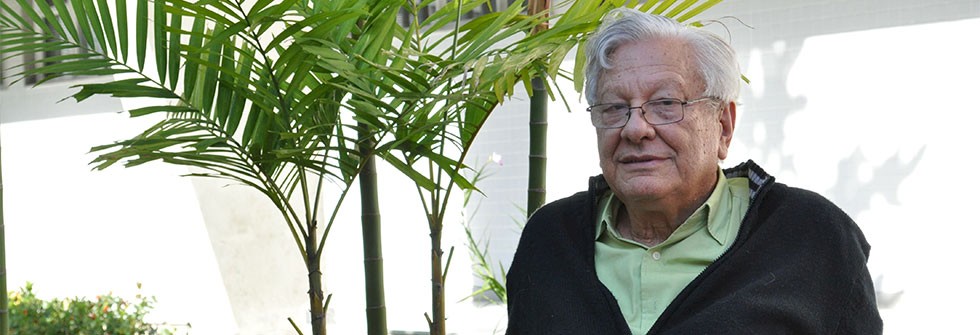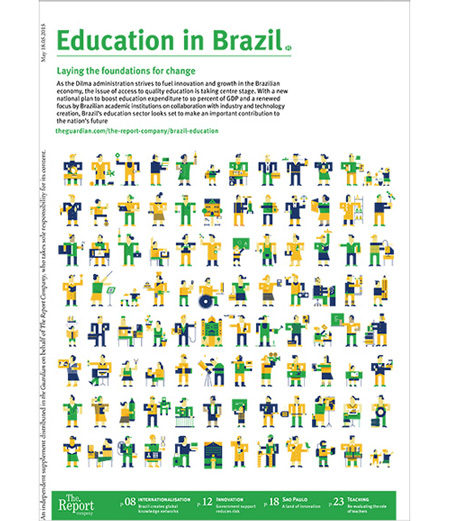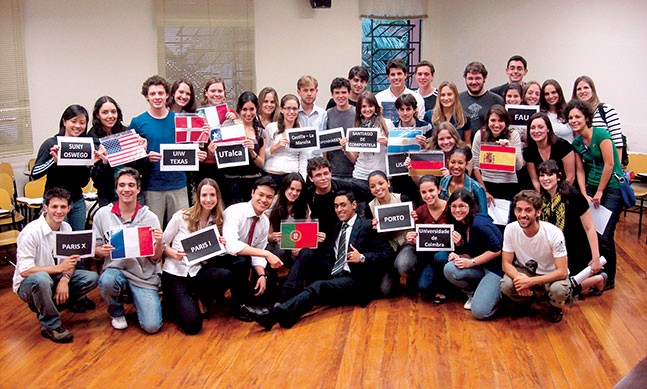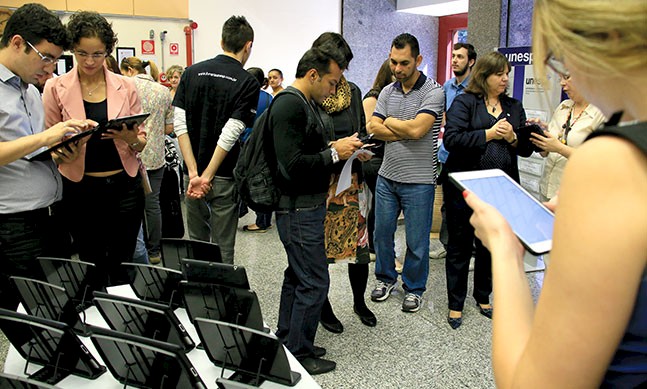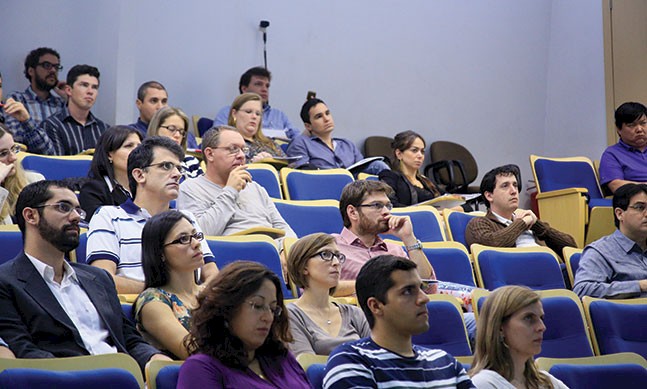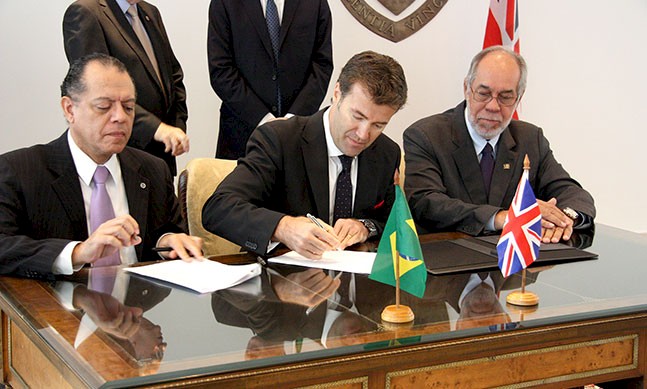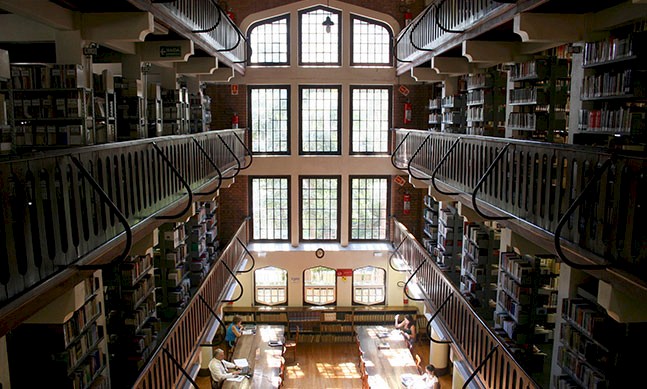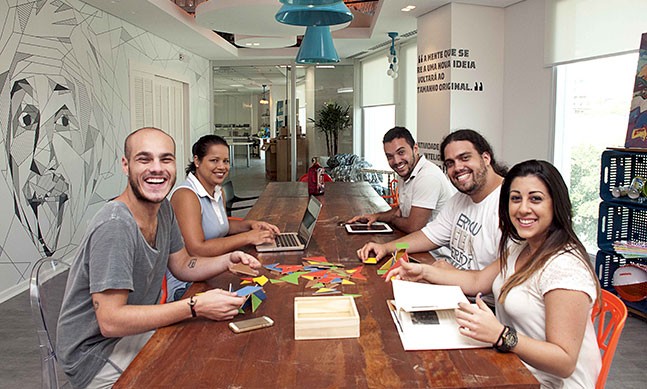The Alberto Luiz Coimbra Institute for Post-Graduation Engineering and Research (Coppe) is a unit of the Federal University of Rio de Janeiro (UFRJ), founded in 1963. Today it is under the directorship of Professor Luiz Pinguelli Rosa, a nuclear physicist and member of the Nobel Prize-winning Pugwash Council, and boasts over 300 professors and 116 modern laboratories. An ongoing offshore petroleum research partnership with Petrobras and projects with private companies including Shell, OAS and Tractebel make Coppe a strong example of what is possible when Brazil’s higher education and the private sector are allowed to align.
The Report Company: What was previously a very positive picture of the Brazilian economy being painted by the world’s media has now become much more negative and critical. What has happened to cause such a turnaround?
Luiz Pinguelli Rosa: During the Lula administration in which Brazil grew rapidly, the media was praising Brazil as some sort of miracle. Now they are saying the opposite. The media has mood swings and interests which I certainly cannot explain, but we are certainly going through a difficult process now regarding economic growth.
Using Brazil’s standard classification of "A", "B" and "C" for social classes, around 40 million people moved up to "class C" during this period, which were dubbed our new middle class. That is a misnomer, however, because ‘middle class’ does not only refer to income. The average income of "class C" is still only US$630-$840, and a large part of that new "class C" are slum dwellers, even though they have undoubtedly entered the consumer market.
TRC: What needs to be done to promote innovation in Brazil?
LPR: The problem with innovation in Brazil is not knowledge. Brazil is incredibly deficient in basic and middle schooling, especially in public schools where the majority study. This produces a problematic social base. In regards to higher education, the public system is better. Private schools are the best in basic and middle school, but public schools are the best in higher education.
The government has been expanding public universities, but at the same time they haven't been paying enough attention to quality. That said, science in Brazil is reasonably well developed when compared to other developing countries. China could be considered a developed country with undeveloped areas, but its technology is unrivalled. India is also stronger than Brazil, but the countries suchas South Africa, Chile and Argentina are either equal or a little worse than Brazil. We have solid scientific institutions, publish in respected journals and have a large number of doctors. The problem in Brazil is the interface with industry.
TRC: Unicamp holds 15 percent of patents, and some critics say that this is wrong and that industry should be producing this content. Do you agree?
LPR: No, I do not think that the industry should produce the patents. I think the problem is this lack of interface between universities and industry because of the barriers imposed by the government. We are immensely bureaucratic and the legislation is very complex with laws for everything - even the tiniest details are regulated.
Coppe is reasonably new and so we avoid many of these problems, but if you look at the university as a whole, there are a lot of unfinished buildings because prosecutors or lawyers got involved. The ministry of science and technology may provide a stimulus, but the ministry of planning might prohibit it. Brazil is locked: the government stimulates with one move and prohibits with another.
The Brazilian state is very bureaucratic. We struggle a lot to create strong relationships with companies and some governmental institutions keep trying to hinder them. Yes, the goal of universities is teaching students, but if you try to nurture relationships with companies, you are frowned upon.
TRC: What are the success stories?
LPR: Our biggest client in Coppe is Petrobras, because their research centre is here. Coppe came about as a product of that, although it had more to do with chemistry before it moved on to oil exploration, especially offshore. Furnas has also been a client from the beginning, but the relationship with Petrobras is currently the most important. We have agreements with Furnas, Eletronuclear and other private companies, such as Shell, and cooperation agreements with Tractebel.
TRC: Has investment in research and innovation dropped off as some are suggesting?
LPR: Yes, there was a drop, but it didn’t affect us. Coppe continues to grow because of pre-salt oil exploration, which we are heavily involved in. We have a huge laboratory here that is dedicated exclusively to that. However, at a national level there was a drop. We have seen the Science without Borders Programme, which took many students abroad to study, but unfortunately, the programme was very disorganised; the students were thrown into the air to see where they would fall.
TRC: What is your appraisal of the Science without Borders programme?
LPR: There were good aspects, even amidst the chaos. The problem is that Brazilian industry does not have a history of innovation; it developed through contracts with state companies or as suppliers for foreign companies, such as parts for car makers. There is little innovation, plus, Brazilian brands are not very well known. There are no well-known Brazilian brands; we make parts, but not entire products, other than for foreign companies that set up here. There is no focus or planning for innovation in Brazil and although I am a socialist, I think Brazil lacks capitalism. Brazilian entrepreneurs are not as innovative. We have no Rockefellers or Fords. They wanted to make money by making things, they were passionate about it. In Brazil, that drive isn't as strong.
“Although I am a socialist, I think Brazil lacks capitalism. Brazilian entrepreneurs are not as innovative. We have no Rockefellers or Fords.”Tweet This
TRC: What is your approach to internationalisation?
LPR: We are in contact with Norway because of offshore oil exploration, with England, with China, where Coppe has a centre at a university in Beijing, and we have always been very international. Coppe was created through an invitation to American, French and Soviet professors, who came to Brazil. There were some British professors and, later, German professors also came, so Coppe was international from its inception.
I think it is crucial to collaborate with Stanford, the MIT, Columbia University, but I am not so sure about opening an office and having a bureaucrat sit there; it would have to have a very clear goal. Far better is to use the existing structure of the universities; we don’t usually charge professors when they come here and use an office and the same happens when we go to the United States, France or China. Establishing relationships between universities is cheaper. When companies want something from us, however, we send them over to Coppetec, which exists to negotiate contracts and agreements.
TRC: How would you appraise the relationship with the UK in education?
LPR: If you look at our professors, most of them have studied in the United States, but England is in second place. England used to be very accessible for doctorates and the system was more focused on research, which was an advantage, because students do not waste so much time with courses. I'm not saying it is easier, but it’s more accessible and less bureaucratic.
TRC: What projects is Coppe involved in?
LPR: Near to my office there is a small magnetic levitation train line, which we are finishing now. It is different to what the Germans and the Chinese are developing, which are high-speed trains. This is an urban, friction-free and energy-saving train developed with OAS. We also developed a hydrogen-powered bus alongside Furnas, which is driven here on the campus. We developed an electricity generator that uses sea waves, built in the state of Ceara, at the port of Pecem, and now we are reformulating it. We also have a sustainable city project, looking at how to increase the use of renewable energy.
We are now building a hybrid bus where a small, ethanol-powered engine produces the electricity that powers the bus. This is simple, but hasn't been done anywhere else. Our wave generator is also simple and obvious; the sea water gets compressed and spins a regular electrical generator. Our method is to make things and build relationships with companies and we pay all the professors and students that work on the project. The institution also gets some of the money, which is what allows us to have these great facilities.
TRC: What is the future of Coppe and Coppetec?
LPR: We have a group here called Coppe Ideia, whose goal is to think about how we can develop in the future. We have grown a lot in the last few years and now we need to consider priorities and make this growth sustainable. It has to be part of the discussion of Brazil as a whole, though.


